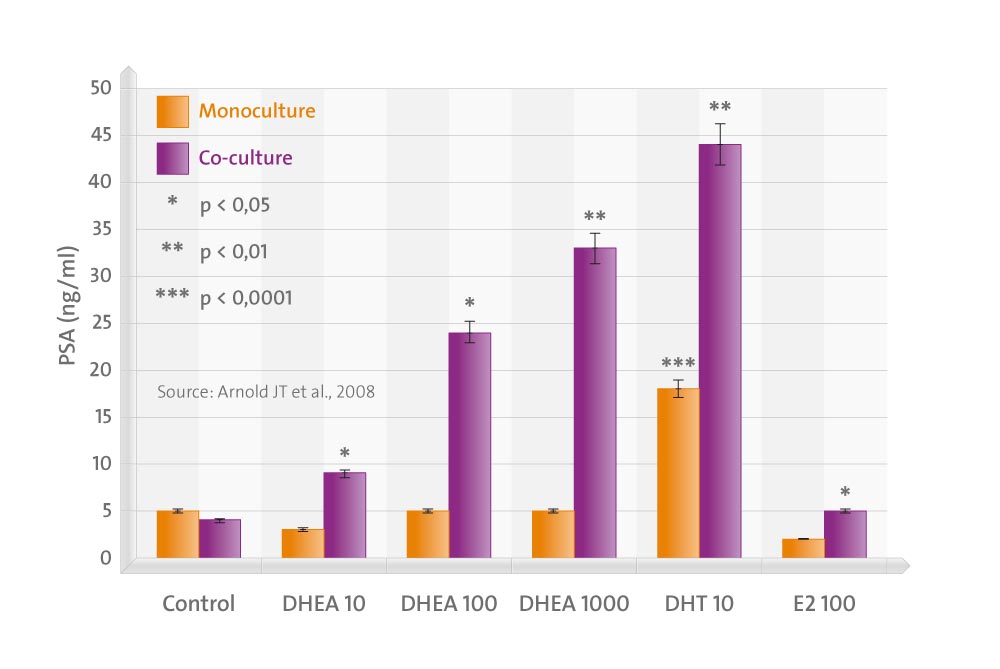Dehydroepiandrosterone (DHEA) is commonly used as a dietary supplement and may affect prostate pathophysiology when metabolized to androgens and/or estrogens.
Human prostate LAPC-4 cancer cells with a wild type androgen receptor (AR) were treated with DHEA, androgens dihydrotestosterone (DHT), T, or R1881), and E2 and assayed for prostate specific antigen (PSA) protein and gene expression. In LAPC-4 monocultures, DHEA and E2 induced little or no increase in PSA protein or mRNA expression compared to androgen-treated cells. When prostate cancer-associated (6S) stromal cells were added in coculture, DHEA stimulated LAPC-4 cell PSA protein secretion to levels approaching induction by DHT.
Also, DHEA induced 15-fold more PSA mRNA in LAPC-4 cocultures than in monocultures. LAPC-4 proliferation was increased 2-3-fold when cocultured with 6S stromal cells regardless of hormone treatment. DHEA-treated 6S stromal cells exhibited a dose- and time-dependent increase in T secretion, demonstrating stromal cell metabolism of DHEA to T.
Coculture with non-cancerous stroma did not induce LAPC-4 PSA production, suggesting a differential modulation of DHEA effect in a cancer-associated prostate stromal environment.
This coculture model provides a research approach to reveal detailed endocrine, intracrine, and paracrine signaling between stromal and epithelial cells that regulate tissue homeostasis within the prostate, and the role of the tumor microenvironment in cancer progression.
